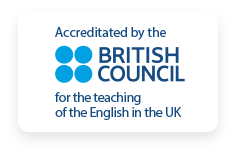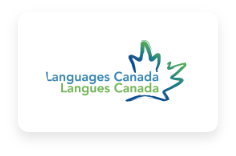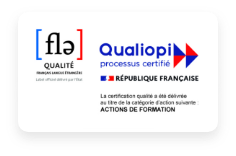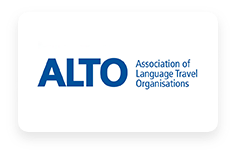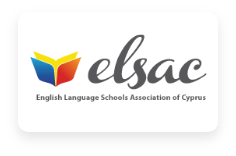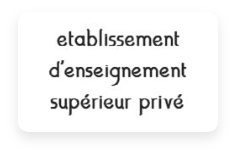For the latest updates about our schools click here
Discover Eurocentres
70 years of experience
Eurocentres was born in 1948 as a way to transform learning into an enriching, personal experience. Since then, we have evolved into a market leader in international language teaching.
-

We make it easy for you
A global network of schools and multilingual advisors at your service.We make it easy for you
We want to make sure you have the best time possible with us. With the range of choices available, choosing the perfect school can seem like a huge task. This is why we offer help and advice in 10 different languages, from expert consultants who will use their own industry experiences to guide you.-
 Any questions you may have about your future course, accommodation, or even social life, can be submitted via our website or by contacting the school you have in mind. Your requests will be personally handled by a dedicated officer, so you can be sure of receiving individual assistance.
Any questions you may have about your future course, accommodation, or even social life, can be submitted via our website or by contacting the school you have in mind. Your requests will be personally handled by a dedicated officer, so you can be sure of receiving individual assistance.
-
-

We make significant contributions
...to the field of language teaching. Since 1948, Eurocentres has committed to improving learning experiences for students worldwide.
We make significant contributions to the field of language teaching
In 1990, the Council of Europe Language Policy Unit commended Eurocentres for aiding in the development of the CEFR, a crucial framework for language learning and assessment.-
 When you arrive at the school, you will be placed in a class according to your CEFR level (the Common European Framework of Reference for Languages). This is the most accurate way to make sure you learn at the right pace for you and that you study materials that are appropriate for your language level.
When you arrive at the school, you will be placed in a class according to your CEFR level (the Common European Framework of Reference for Languages). This is the most accurate way to make sure you learn at the right pace for you and that you study materials that are appropriate for your language level.
-
-

Inside and outside of the classroom
... we provide learning opportunities. We believe that successful language learning is a personal experience that can take place anywhere. Eurocentres schools make it easy to immerse yourself in the culture of your destination country.We provide learning opportunities inside and outside of the classroom
Specialised social programmes are offered to help students to make new friends and explore their new environment safely, under the guidance of local teachers or dedicated travel guides.-
 Ask the staff at your destination school for help and advice on booking trips and joining weekly activities.
Ask the staff at your destination school for help and advice on booking trips and joining weekly activities.
-
-

We believe in partnership and collaboration
Having started as a single school in Bournemouth, opened in 1948, Eurocentres has become an international organisation that connects students with schools in 15 different locations across the globe.We believe in partnership and collaboration
Through decades of international collaboration, Eurocentres schools have created long-lasting partnerships together across Europe, North America, and the South Pacific.-

We believe in partnership and collaboration
Whether your dream is to work abroad, study in a different country, or simply to improve your language skills, the Eurocentres model makes it easy to achieve your aims. We facilitate your transition process, from the initial booking and inquiry stages, all the way through to the end of your stay.
-
Advice for Under 18s
Eurocentres offers year-round courses and programmes to students over the age of 16 from all over the world in all of our UK centres. Please note that these students will join our adult courses unless enrolled on our Junior Summer programmes.
Under 18s will be required to provide a parental consent form prior to arrival, as part of our safeguarding procedure.
Please note some of our year-round schools social activities may not be suitable for students under 18.
Under 18s are required to sign in at arrival and sign out at departure each time they are at the school.
It should be noted that we cannot provide 24-hour supervision to adults or students between 16-18 years old. Under 18s will also be recommended to stay in homestay accommodation.
-
70 years
-

Discover Eurocentres
Eurocentres began 70 years ago as a meeting point for people from all over the world. Over seven decades, it has made significant contributions to the field of language teaching and remains committed to improving learning experiences by delivering excellent and innovative teaching.
-
15,000 students
-
100% success guarantee
-
87% students said "excellent"
-
50 years Language Education Consultant for the Council of Europe

70 years of experience
Pioneer Period: 1948 - 1960
1948: Erhard Waespi opens the first Eurocentres school in Bournemouth.
1959: The early Eurocentres schools come to the attention of the Federation of Migros Cooperatives. Founder Gottlieb Duttweiler takes over and opens three new centres in Florence, Barcelona, and Cologne.
1960: Duttweiler forms an independent Foundation under the Eurocentres name, creating a number of what he terms 'European Language and Educational Centres'. The total number of students studying with the Foundation rises to 4,300.1960:
Duttweiler forms an independent Foundation under the Eurocentres name, creating a number of what he terms 'European Language and Educational Centres'. The total number of students studying with the Foundation rises to 4,300.
Initial Expansion Period: 1960 - 1975
1960: Collaboration with France, Spain, and the USA begins.
1968: Eurocentres receives the "Statut Consultatif de la Catégorie 1" - advisory status in the field of language teaching and learning - from the Council of Europe.
1975: The number of students exceeds 20,000 per year.
Implementation Period: 1975 – 1985
1975: The first purpose-built school in London showcases innovative classroom design and self-learning facilities, as well as facilities for Computer Assisted Language Learning.
1984: Eurocentres Cambridge, the second model school for teaching adults, follows.
1977
Second Expansion Period: 1986 – 1999
1986: The first purpose-built school for teaching German opens in Cologne.
1988: New centres are opened in countries outside of Europe, including the USA and Japan.
1990: Eurocentres aids in the development of the CEFR (Common European Framework of Reference for Languages) and is commended by the Council of Europe Language Policy Unit for its contributions.
1991: With the completion of a new purpose-built school in La Rochelle, there are now 3 year-round schools in France – Paris, Amboise, and La Rochelle.
1993: The "Eurocentres Scale of Language Proficiency" is put into practice. It is followed by the development of a computerised language testing system which enables teachers to generate reliable tests according to students' individual needs.
1995: The first consultancy agreements take shape in in Switzerland, Spain, and Brazil.
1999: International collaboration leads to partnerships in Canada and Malta.
1993
Third Expansion Period: 2001 – 2008
2002: There are now two Eurocentres schools in Canada, and further partnerships develop with schools in Malta, Australia and Spain.
2005: There are now two Eurocentres schools across Australia and a centre opens in Auckland, New Zealand.
2006: Cape Town, South Africa, opens its own centre.
2007: A new school for teaching German opens in Berlin.
2008: The Eurocentres school network in Australia is completed with the opening of Eurocentres Sydney. Today: Eurocentres remains an internationally-recognised organisation, with a network of schools, agencies and offices dedicated to maintaining global dialogues across cultures.
Accreditations
Brochure
Success stories
-
Yuki Nakamoto
 "Thanks to Eurocentres' help, I had the opportunity to work at a local primary school as a volunteer."
"Thanks to Eurocentres' help, I had the opportunity to work at a local primary school as a volunteer." -
Andressa Rodriguez
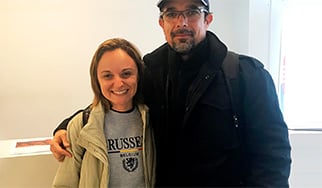 "The course material is excellent and the teachers are fabulous! I love all of them."
"The course material is excellent and the teachers are fabulous! I love all of them." -
Fusako Ishikawa
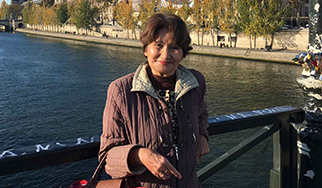 "I didn't learn only French but also learned about the French culture, way of life, food and wine."
"I didn't learn only French but also learned about the French culture, way of life, food and wine."

